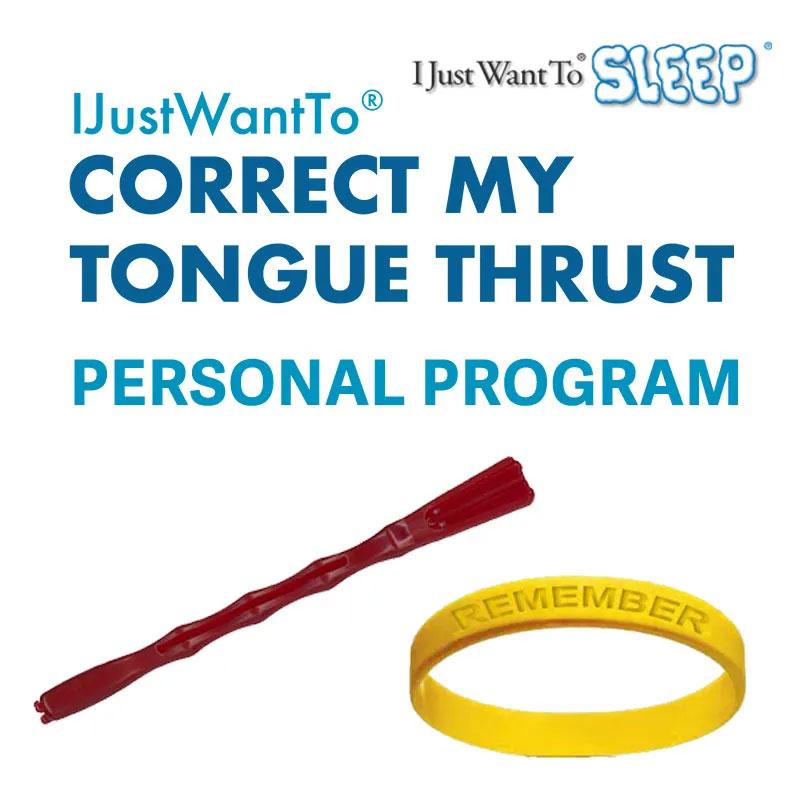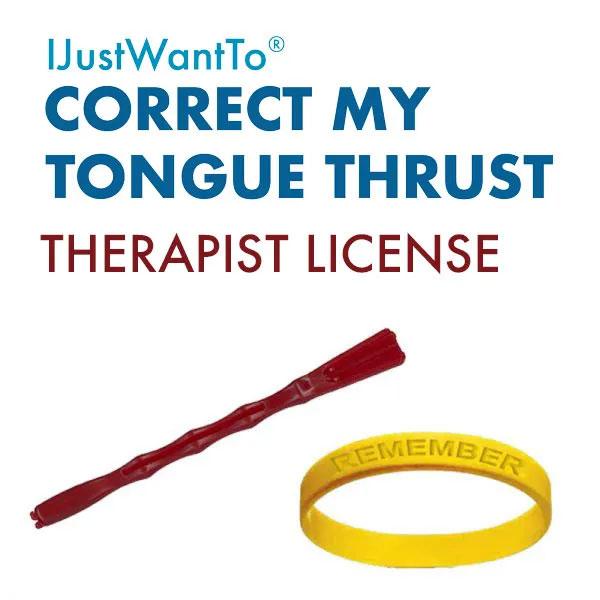What Is Tongue Thrust?
Before we go any further, let’s define tongue thrust. The term tongue thrust describes a condition wherein a person’s tongue sits improperly in the mouth when you’re swallowing or at rest. You swallow over 2,000 times each day, exerting upwards of six pounds of pressure with your tongue each time.
Your tongue should be pushing on the roof of your mouth. If it is instead pushing on your teeth, you have a tongue thrust.
Tongue Thrust Can Begin Quite Early in a Child’s Life
In a previous article, we wrote:
“We are all born with a tongue thrust. Around the age of 12 months, we should outgrow this unless one of the above issues is still occurring. When the baby misses that 12-month “window” of growing out of tongue thrusting, it continues on and becomes a habit.”
It is not at all uncommon for babies to have a tongue thrust. In fact, it’s expected, especially for those who are bottle-feeding or nursing. However, that tongue thrust should stop around the age of 12 months. It’s when it doesn’t improve that it can begin impacting a child’s life.
Tongue Thrust in Children
Why does tongue thrust impact some children and not others? There are a few behaviors and habits that can contribute to tongue thrust:
- Long-term thumb sucking
- The use of a pacifier or prolonged use of a bottle
- Cavities or an accident can cause the premature loss of “baby” teeth
- Enlarged Tonsils and adenoids
- Factors that are inherited
When children develop tongue thrust, it can lead to other issues, such as:
- Dental Problems: When the tongue pushes against the teeth, it can cause dental problems, including an overbite. The tongue basically pushes the teeth forward or creates a gap between the top and bottom teeth.
- Teeth Grinding: When a child's teeth are not properly aligned, it is possible they will grind their teeth. Teeth grinding can lead to frequent headaches and other potential issues.
- Speech Issues: A tongue thrust in a kid can cause a speech impediment such as a lisp. A lisp is a condition in which a child's "s" sound is pronounced as "th." For a child, speaking with a lisp can be very embarrassing and carry on into adulthood.
- Mouth Breathing: A child with tongue thrust may breathe primarily through their mouth. Mouth breathing can cause restless nights and lead to problems in adulthood. Poor sleep can cause fatigue, which can lead to a lack of attention in school and added stress.
Tongue thrust is not a problem limited to children.
Tongue Thrust in Adults
Children with tongue thrust may not shake it before they become adults. As you age, you can experience other issues related to tongue thrust, including:
- The persistence of mouth breathing, which can lead to other health problems.
- Mouth breathing can cause you to develop persistently bad breath.
- Mouth breathing can lead to snoring and potentially contribute to sleep apnea.
- If you are snoring or not breathing well at night, you can develop ongoing chronic fatigue.
- Chronic fatigue can lead to stress, lack of focus, and irritability.
Can you believe the tongue can contribute to all of those issues? Fortunately, for children eight years and older through adults, there is something you can do about tongue thrust!
IJustWantTo® Correct My Tongue Thrust
IJustWantTo® Correct My Tongue Thrust is a seven-week program that guides you through tongue exercises that are described in written words and videos. The author, Janet Bennett, M.Ed., CCC-SLP, has a Master’s degree in Speech Pathology and has been a licensed Speech Pathologist for over 35 years.
The goal of this seven-week program is to retrain your tongue's position in your mouth through a series of exercises. Week to week, the activities vary, but they only take five to ten minutes each day. Most of these can be completed while driving to work, reading, watching TV, or cleaning the house.
If you are ready to begin correcting your tongue thrust, get started with our program today!




